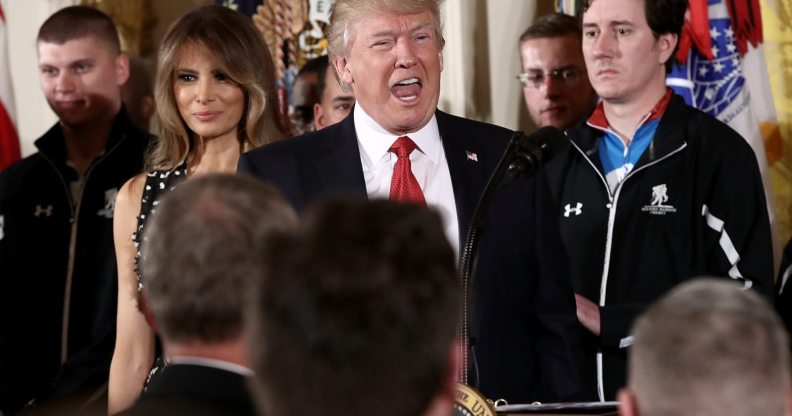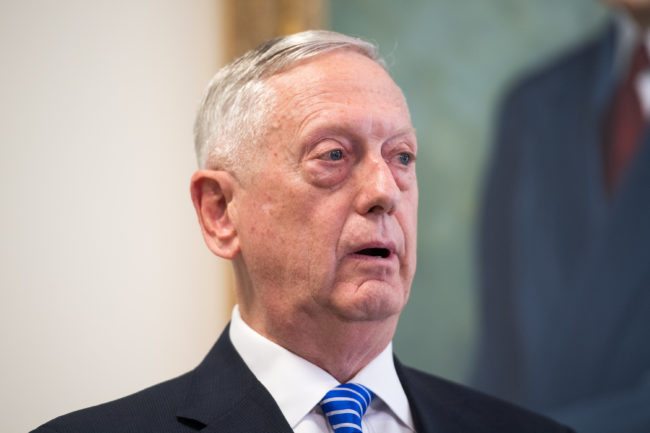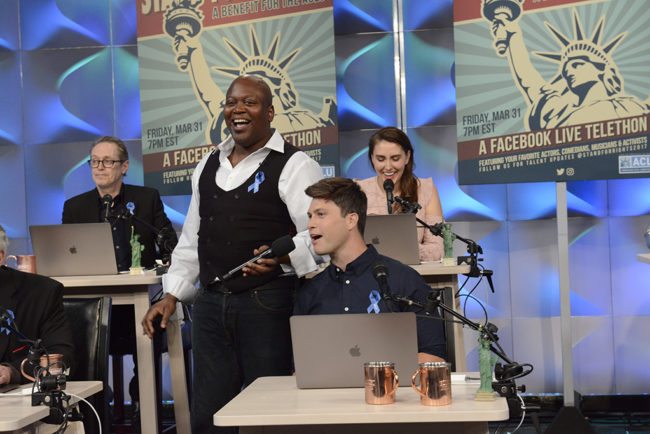How can Donald Trump’s transgender military ban be stopped?

Both Askini and Rose accused the Trump administration of deliberately making life difficult for trans people (Win McNamee/Getty)
Donald Trump’s transgender ban hit a major roadblock this week.
The US Secretary of Defence, General James Mattis, announced that any recommendation to Trump would be delayed until after a group of experts had reported its conclusions to him.

(Getty)
The prospect of more than 10,000 trans service people being thrown out of the military still looms large though, with Trump’s deadline of March 2018 fixed in place.
So how can Trump’s inhumane ban be stopped?
Option 1: The Mattis route

General James Mattis (Getty)
Mattis hasn’t halted the ban entirely – but he could.
He has said that his group of experts has “mature experience, most notably in combat and deployed operations, and seasoned judgment to this task.”
With the Defence Secretary having put this panel together himself, he will be aware of the likely outcome from the group’s discussions.
All signs point to the idea that Mattis is slowing down the process – he asked for clarification after Trump’s sudden, transphobic tweetstorm in which he announced the ban, and has delayed the process again this week.
He asked for the panel of experts to congregate despite an extensive 2016 study which concluded that the impact on the military of trans service people was likely to be minimal.
Mattis will be aware of gender discrimination laws, and the way they could be used in court to stop Trump’s tweets turning into actual, transphobic policy.
And seeing as he has the power to issue a recommendation, it may be that by shining a blinding light on the issue, he’s preparing to eventually tell the president to trash his trans ban plan.
This influence, when combined with Trump’s short attention span and deep respect for military (cisgender) men, could prove vital.
Option 2: Lawsuits

Tituss Burgess at the Benefit for the ACLU (Getty)
Earlier this week, the American Civil Liberties Union filed two lawsuits in the US District Court in Western Washington on behalf of all transgender people who want to enlist.
The first claims that the move to ban transgender military personnel relied on “uninformed speculation, myths and stereotypes, and a desire to harm transgender people”.
The second suit claimed that prejudice towards trans people fired the decision to enforce the ban.
Joshua Block, an attorney for ACLU said that trans personnel were of more worth than the ban that had been imposed.
When you consider that it’s, at most, an $8.4 annual investment for more than 10,000 brave service people, Block’s statement makes a lot of sense.
“Men and women who are transgender with the courage and capacity to serve deserve more from their commander-in-chief,” Block said.
Plaintiffs in the case said the policy was “dripping with animus”.
Five active trans soldiers are in the process of suing the president over the ban as well.
LGBT legal non-profit Lambda Legal has also announced its intention to sue over any potential policy – and if the government’s lawyers don’t plead their case well in court, the US judiciary has shown it’s not afraid to strike an order down.
Just take the travel and refugee ban – commonly known as the Muslim ban – which a federal judge in Hawaii blocked in March.
Option 3: Congress

Lawmakers could still decisively shut down any ban by Trump before it even happens.
Democratic Senators Kirsten Gillibrand and Cory Booker plan to put forward a bill to block any exclusion of trans service people when Congress is back in session.
And according to the Congressional Research Service – which, as the name suggests, is Congress’s research arm – representatives have another route to killing the ban.
In a paper attained by the Federation of American Scientists, it pointed out: “Congress may draft legislation to affect such Administration policy, under its authority to make laws governing the armed forces.”
And that could be carried out as part of the annual National Defence Authorisation Act, which has to be passed by Congress.
45 senators – 44 Democrats and one Republican – signed a letter to Mattis opposing the ban, so there’s hope yet.

